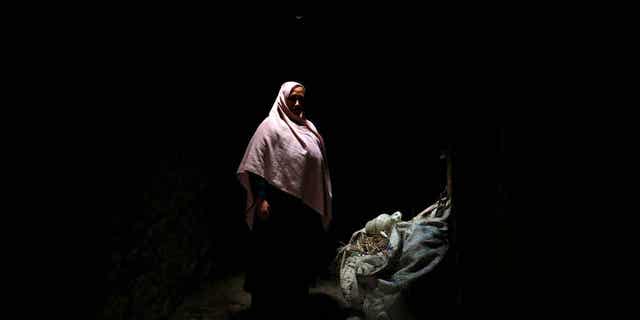In a small village circled by velvety white snow-topped mountains in Afghanistan’s Bamiyan province, Aziza Rahimi mourns the baby son she lost last year after a harrowing birth with no medical care.
“It was too hard for me when I lost my baby. As a mother, I nurtured the baby in my womb for nine months but then I lost him, it is too painful,” said Rahimi, 35.
The village’s rugged and remote beauty in Bamiyan’s Foladi Valley comes with deadly barriers for pregnant mothers. A narrow road to the village with few vehicles is sometimes cut off by snow, severing a lifeline to hospitals, clinics and trained health workers.
However, a potentially life-saving improvement is on the way. Rahimi’s village is one of several around Bamiyan that have sent 40 young women to train for two years as midwives in the provincial capital, after which they will return home.
Isolation can become a death sentence in any difficult birth, doctors and aid workers say, contributing to Afghanistan’s extremely high maternal and infant mortality rates, among the worst in the world.
AFGHAN MIDWIFE WITH DREAMS OF BECOMING DOCTOR LOSES JOB UNDER TALIBAN RULE
The United Nations estimates an Afghan woman dies every two hours during pregnancy and childbirth, making Afghanistan’s maternal mortality rate the highest in Asia.
The trainee midwife programme has been spearheaded by the U.N. refugee agency (UNHCR) with the Watan Social and Technical Services Association, a local charity. They hope to expand the programme, which also takes place in neighbouring Daikundi province.
Since taking over in 2021, Taliban authorities have barred women from universities and most charity jobs, but they have made exemptions in the healthcare sector and UNHCR says local health authorities are supportive of the project.
Aziza Rahimi, 35, poses for a photo inside her house in Foladi Valley in Bamiyan, Afghanistan, March 2, 2023. Rahimi gave birth, but her baby died shortly after. (REUTERS/Ali Khara)
Donkeys
“When the roads are blocked of course there is no means of transportation, people even use donkeys to move patients to the clinic centres, but sometimes there is not even the opportunity for that,” said Mohammad Ashraf Niazi, the head of UNHCR’s Bamiyan office.
Rahimi, who has five other children, said riding a donkey was out of the question when she was jolted by pain while nine months’ pregnant in the middle of the night four months ago. Stumbling, bleeding, for two hours to her in-laws’ house after her husband…
Click Here to Read the Full Original Article at FOX News : World…

